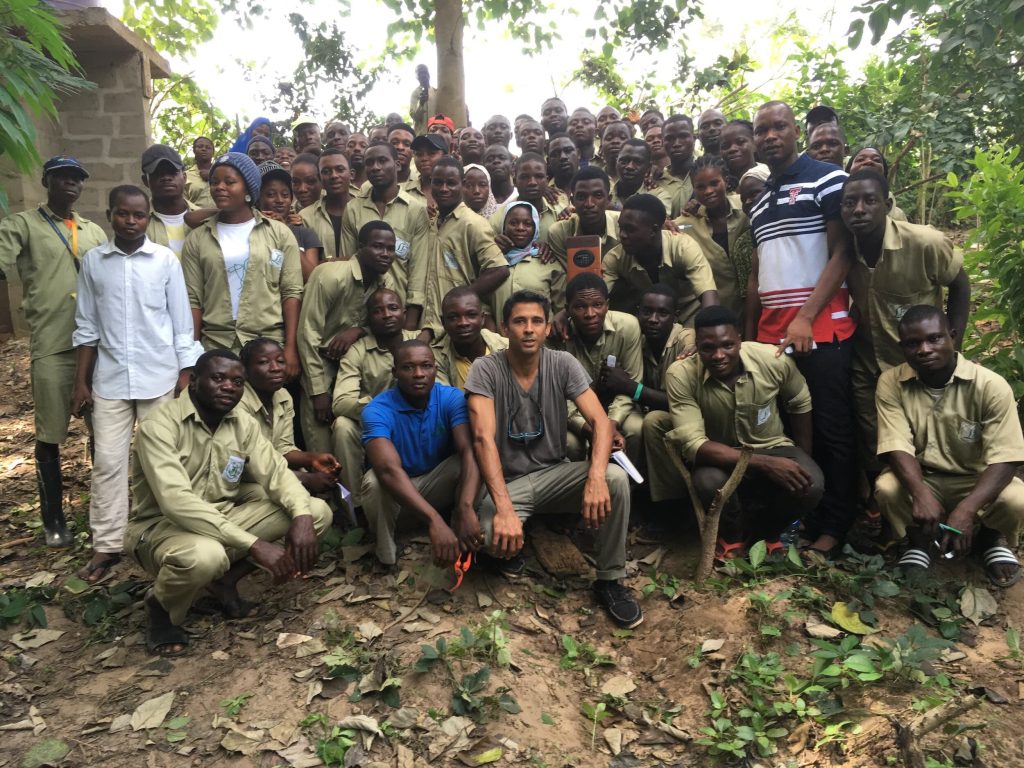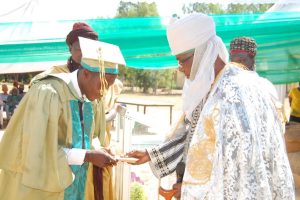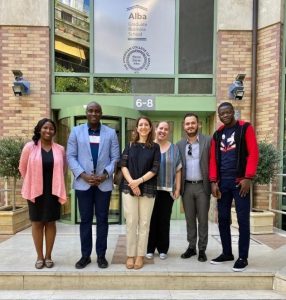Education & Training
Education/
Training Components
Training (one-year and short course)
LFN has been training youths and farmers (both men and women) in Nigeria and Ghana since 1988 and currently runs six schools in 6 different states in Nigeria and four centres in Ghana. This is achieved through yearly recruitment of youths to participate in training on modern and sustainable agriculture in crop production and agroforestry, livestock production, enterprise development and farm mechanisation. The schools have capacities to admit 100 to 150 trainees (male and female except Panda School which currently admits only male trainees) per year. LFN has trained more than 27,000 youths under the one-year regular training from 1988 to date. All trainees receive board and lodging, school and work uniforms free of charge including monthly stipends.
The training is 80% practical and 20% theory.
To participate in the one-year regular training, the applicants must meet the following requirements:
- Be physically fit
- Ability to read and write in English (evidence of a minimum of junior secondary school certificate may be required)
- Age between 18 to 40 years.
- Pass both written and oral entrance examinations.

LFNs support program to ex-trainees involves microloans and extension services. Based on bankable business plan developed by the graduates and assessed by the foundations agribusiness and finance experts, soft loans are provided to our ex-trainees to embark on enterprise of interest or expand an existing enterprise.
- More than 1000 graduates of LFN Agricultural Schools have received micro credit support.
- More than N100m disbursed from 2002 to date

The foundation provides technical backstopping through:
- Short courses to address farm problems and acquaint them with new and relevant information and technology.
- Provision of improved seeds.
- Linkage to input source.
- Linkage to market.
- Farmers Field Days
- Technical Advisory Panel Meeting held three times in a year which provide technical supports for each school

Leventis Foundation supports Nigerian nationals through various scholarship programmes like Alba Graduate Business School, Greece and the Undergraduate program on Sustainable Agriculture at Earth University, Costa Rica.
- Environment and Conservation
- CROP PRODUCTION AND AGROFORESTRY
- LIVESTOCK PRODUCTION
- RURAL ENTERPRISE DEVELOPMENT
- AGRICULTURAL ENGINEERING

- A core part of our programmes is to train and support farmers to adopt improved, environment-friendly farming practices. To achieve this, we promote integrated management practices with a view to reducing the impact of agriculture on the environment, reduce waste of resources and improve the efficiency of farming. We promote climate smart practices such as minimum tillage and efficient use of water and inputs.
- We engage in treeplanting campaigns while also exposing our trainees to wildlife friendly farming practices and experiences that encourages care for the environment such as bird watching.

This department handles training in arable crops production and Agroforestry. The training on arable crops covers all mandate crops in the different zones of Nigeria where the schools are located. For example, in the North Western Zone of Nigeria these include: Maize (white and yellow), Sorghum, Soya beans, Cowpea, Groundnut and Popcorn. Vegetables such as amaranths, tomato and spices such as pepper are also produced during training. Training on the above crops includes dry season farming activities through the use of Fadama/irrigation facilities and also rain fed farming activities. Agroforestry training includes raising of tree crops such as oil palm and citrus, medicinal trees such as moringa, medicinal trees species and bee-keeping. It also includes raising of exotic ornamental and horticultural crops. Soil conservation practices which include crop rotation practices, the use of cover crops and erosion control practices are also taught and demonstrated in the unit.
Training received on modern methods of Arable crop production based on the ecological zone of the schools:
- Seeds and seedling production
- Permanent/plantation crop production
- Irrigation/dry season farming of vegetables, maize, and recently cowpea and groundnut at Panda School.
- Establishment of arboretum
- Orchard production such as mangoes, citrus, guava, etc production.
- Beekeeping
- Mushroom farming
- Horticulture and floriculture

In this department, enterprises that are economically viable and culturally compatible with a specific region are incorporated into the training curriculum. In the northern culture, these include Poultry production (Broilers, cockerel and laying birds), cattle breeding and fattening, rabbit and fish production. In the department, training covers cost saving and quality assuring feed formulation and compounding practices, animal health including diseases prevention and control methods (vaccination, medication, proper brooding and effective rearing)
Training on modern methods of:
- – Poultry production (layers, broilers, cockerels)
- – Small ruminant production (sheep and goat)
- – Large ruminant production (cattle)
- – Dairy
- – Piggery production (southern schools only)
- – Rabbitry production
- – Snail farming
- – Cane rat (grass cutter) farming
- – Fisheries

Training in this department covers three main activities which include: Farm Management and Extension services unit, Agro-processing and value addition unit and Rural Financing unit.
Under farm management and extension services, trainees are taught good farm management practices which include farm cost saving techniques, good record keeping and cooperative management of farms. Extension team from the school also follow up by visiting and technically backstopping graduates and practising farmers (ex-trainees) through on-farm training and technical advice. The unit organises short training and refresher courses including farmers’ field days, facilitate and manage practising farmers’ cooperative groups, facilitate ex-trainees interaction etc.
Training in agro-processing and value addition includes off farming season income generation activities/enterprises such as sorghum drink (kunnu Zakhi), yoghurt, tomato paste production, liquid detergent, izal, body spray etc.
Trainings in rural financing are provided to trainees, first in the school and subsequently backed up with financial assistance to ex-trainees with viable and sound business plans but lack financial power, through the Leventis Foundation Experimental Micro credit scheme (LFEMC)
- – Basic farm management principle
- – Development of business plan.
- – Farm level storage
- – Farm processing in form of value addition to harvested farm produce.
- – Marketing of farm produce
- – Principle of record keeping.
- – Tie and dye skill acquisition..

This department trains the trainees in simple farm tools maintenance, farm power; farm mechanisation etc. Trainees are involved in the servicing of farm machineries such as tractors and are also capacitated in the fabrication of farm tools like hoes, simple maize shelling machines etc.
- Tractor driving and tractorization.
- Farm calculation
- Fabrication of simple farm tools
- Maintenance of farm tools and implements
- Farm mechanization
- Animal Traction
- Construction of simple farm structures
